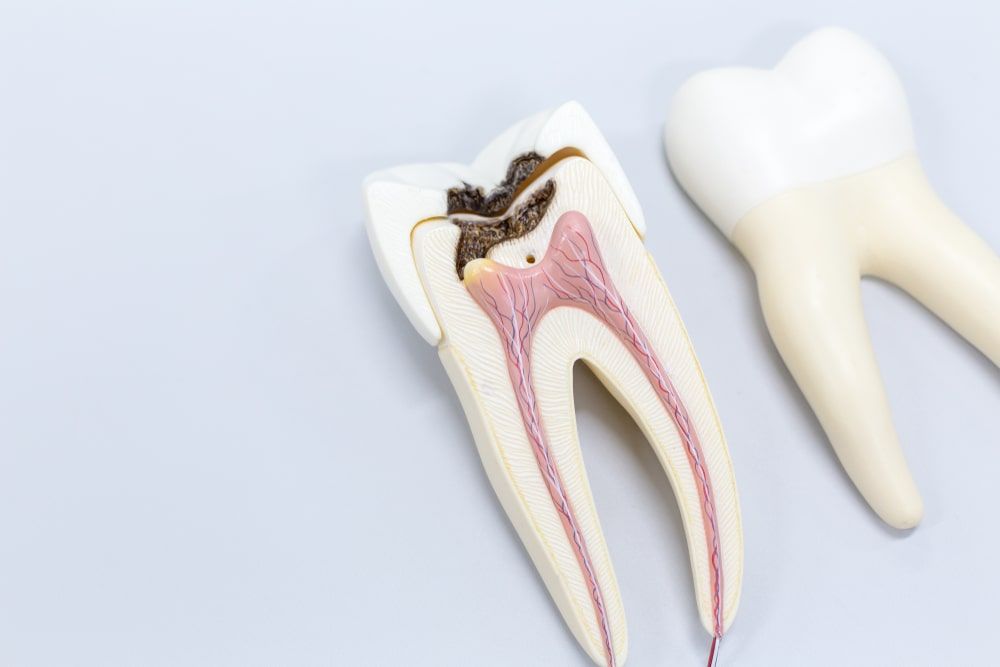Most often, standard root canal treatment (and possibly retreatment) is sufficient to address dental problems associated with the root canal tissue and supporting periodontal (gum and bone) structures. Occasionally, an endodontic surgical procedure may be necessary to save a tooth from extraction.The name of the most common endodontic surgical procedure is Apicoectomy:(apico = apex or tip of the root, ectomy = to remove).
The success of standard root canal treatment and retreatment can be affected by variations in canal anatomy. These variations may include extra canals, excessively narrow (calcified) canals, and extreme curvatures of the canals. These variations can be impossible to manage with standard surgical intervention.
Additionally, the size of the localized endodontic infection, the species of bacteria comprising this dental infection, and the patient’s inherent ability to heal properly after non-surgical root canal therapy have a large impact on the necessity of endodontic surgery.
Lastly, surgical exposure can aid in the diagnosis of a cracked root or in the locating of an accessory canal which may not appear on the radiograph and yet may be contributing to a patient’s symptoms.
With this in mind, what are some of the questions that people have?
Frequently Asked Questions
How does a root become infected?
As stated above, apical surgery is a procedure used to remove an infection that sometimes attacks the tips of roots. This infection usually begins when bacteria colonize the surrounding bone and spread to the outside of the root. This mat of bacteria is referred to as a biofilm. When the infection reaches the tip of the root, apical surgery is sometimes required to remove the infection. While apical surgery is relatively uncommon with advances in non-surgical treatment, it is still effective in some cases.
Who is a candidate for apical surgery?
Apical surgery is usually reserved for cases hat have failed normal root canal treatment. A root canal is the standard treatment used to treat infections around and inside of roots but no procedure is perfect. When a root canal fails to remove an infection, apical surgery is the next option. There are numerous reasons that a separate procedure might fail, including resistant bacteria in the biofilm, another source of infection causing a reinfection, or chronic infection leading to a damaged root that needs removal. With numerous reasons impacting the way infected roots are treated, it is necessary to have a second option in mind. Apical surgery represents this option.
Does apical surgery hurt?
It is common for every surgical procedure to come with some mild discomfort. With this in mind, every patient has various degrees of pain tolerance. When apical surgery is correctly managed, the vast majority of patients handle the procedure without incident. There are numerous options for pain management during the procedure. After the procedure, postoperative management of pain is important. In this situation, there are also multiple options to tailor every pain management regiment to the needs of the patient. Anyone with reservations about the procedure because of the potential for pain should discuss their concerns with a medical professional.
Apical surgery is a procedure used to remove infections from the tips of roots. In most cases, it is used as a backup to a root canal treatment. It is common for patients to have concerns prior to undergoing a surgical procedure. It is important that every patient concern is addressed because every surgical procedure has its risks and benefits. Patients should talk to a qualified medical professional to have their concerns addressed prior to apical surgery.







